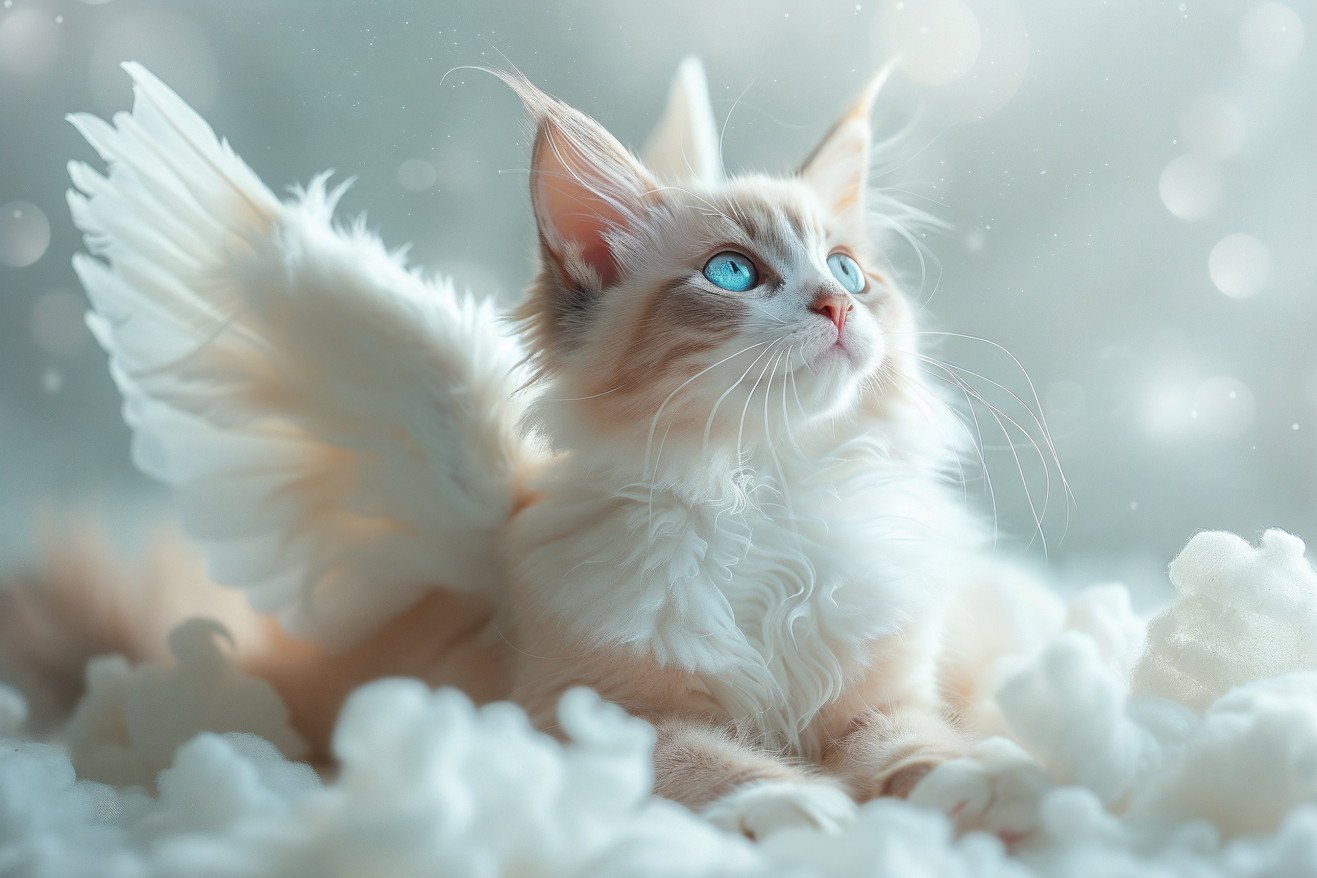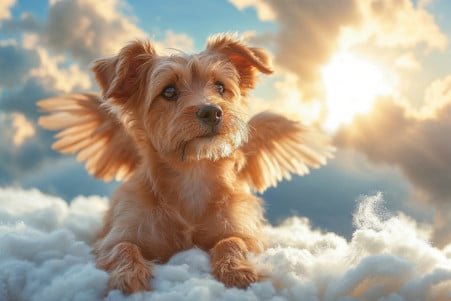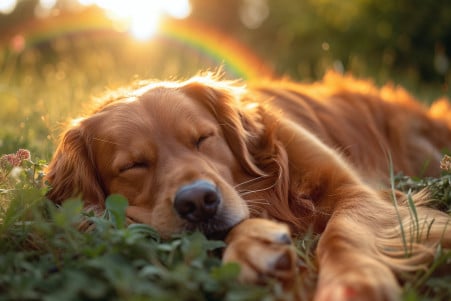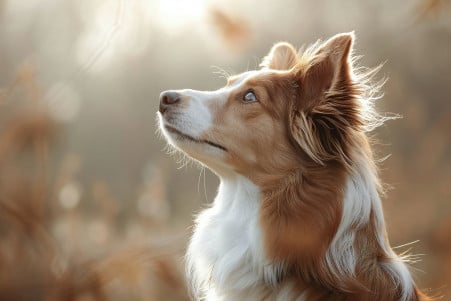Do Cats Go to Heaven? Exploring Beliefs About Feline Afterlife
11 February 2024 • Updated 10 February 2024

The love, comfort, and joy that a cat brings to a person’s life often leads to questions about what happens to them after they die. However, religious texts and traditions don’t offer a clear answer to the question of whether cats go to heaven. While some religious interpretations suggest that all animals will be included in the afterlife, others claim that animals don’t have souls like humans.
This investigation will draw on a wide range of interdisciplinary scholarship in theology, philosophy, ethics, and cultural studies to explore the many different beliefs about the feline afterlife. While no scientific investigation can definitively answer this question of faith, a look at the historical importance of cats and the human-animal bond can help explain why so many people hope to be reunited with their pets in the afterlife.
Do cats go to heaven?
Religion and the Afterlife of Animals
Religious traditions from around the world have a variety of beliefs about whether animals have an afterlife. For example, Quartz noted that Pope Francis’ reassuring statement that heaven is open to all of God’s creatures, including cats, suggests that animals have an afterlife. This is in contrast to other Christian beliefs, including Pope Benedict XVI’s belief that animals don’t have an afterlife.
Islam teaches that all souls, including animals, are eternal, but there is disagreement among Islamic scholars about what that means for animals in the afterlife. Some scholars believe animals are not judged, while others believe they are judged.
Hinduism teaches the concept of reincarnation, where the soul, or jiva, goes through a series of lives. Most Hindu scholars believe that animals, who have eternal souls, are working their way up to human form, which would mean that animals have a different afterlife than humans.
In Judaism, scholars have debated the afterlife for centuries, but there is no consensus on what happens to animals. Even within Christianity, different denominations have different beliefs about whether animals will be part of the afterlife, and many don’t have a clear position.
As we’ve seen, the details of these religious traditions reveal that the spiritual destiny of cats and other animals is a complex mosaic of hope, love, and the aspiration for everlasting connection.
Animal Souls in Philosophy and Ethics
The mystery of animal consciousness has been the subject of philosophical inquiry for centuries. A historical overview of the philosophical perspectives on animal consciousness by Oxford Academic shows that influential figures such as Descartes and Darwin have shaped our understanding of the topic. Today, the question of animal consciousness has ethical implications: If animals are conscious, does that mean they have souls and an afterlife?
The Conversation argues that a new way of thinking is needed. Animal consciousness may be as complex as human consciousness and, therefore, animals deserve ethical consideration that goes beyond human standards. This is the perspective of philosophers like Leonard Dung and Albert Newen, who argue for an expanded view of animal sentience that has influenced modern ideas about animal rights and, in turn, the animal afterlife.
In this way, the recognition of animals as conscious and the belief in an afterlife for animals can be separated from religious ideas and instead connected to a more general ethical perspective. As we learn more about the complexities of animal consciousness, the belief in an afterlife for cats is not just a way to feel better about their deaths but also a reflection of the widening of our ethical horizons.
The Human-Animal Bond and the Afterlife
The death of a pet can lead to a deep sense of loss that is often compared to the death of a human loved one. This is due in part to the human-animal bond, which Psychology Today explains is characterized by emotional closeness, companionship, and unconditional love.
The strength of this bond can have a profound impact on how pet owners cope with the loss of their pets. It can also influence the way they grieve. Physical and psychological symptoms of pet loss can include sadness, loss of appetite, and a sense of emptiness.
In addition, pet owners often use rituals to help them feel connected to their pets after they’re gone, such as holding a funeral or keeping their pets’ toys and other belongings.
Psychology Today points out that the customs people have developed around pet loss show how important pets are to people and have even shaped beliefs about whether pets have an afterlife. Given that pets are now often seen as irreplaceable and important members of the family, it’s not surprising that many people hope their pets will live on in the afterlife.
This need for proof that pets live on after death is a reflection of the basic human need for a sense of connection and for the pain of loss to be reduced.
Social support systems, including social groups and therapy, are important for helping people deal with the loss of a pet. They also help people understand the psychological effects of pet loss and the need for comfort that the belief in an afterlife for pets can fulfill.
Considering the role pets play in our lives, it’s clear that they are more than just animals. They are beloved companions whose memory we want to honor long after they’re gone. This makes us think about how pets have been treated in the past, and how they have often been seen as mystical or sacred in many cultures.
From Sacred to Secular: The Many Roles of Cats in Different Cultures
Cats have played many different roles in human history, from sacred to secular. In ancient Egypt, cats were sacred and even worshiped, and they were often linked to Bastet, the goddess of home protection, as HISTORY pointed out in their recent article.
This special relationship with cats was so important that it even carried over into the afterlife, with mummified cats and cat images found in tombs, showing that cats were still revered even in death.
In addition to Egypt, cats have played important roles in cultures around the world. The Collector discusses the oldest known pet cat burial on Cyprus and the fact that Chinese domestic cats are descended from the African Wildcat, showing that cats have had a long and important history with humans.
As cats went from being working animals to pets, their roles in different cultures changed as well. In Norse mythology, cats were protective, while in Roman mythology, they were a symbol of liberty, according to Google Arts & Culture.
This history of cats being revered in different cultures may even play a part in people’s beliefs about their spirits. The love and reverence people have had for cats throughout history may be why people want to believe cats will be with them for eternity, and hope that the cats they love will be waiting for them in the afterlife.
Thinking About the Idea of a Cat Heaven
In considering the different takes on whether cats go to heaven, we’ve seen a wide range of beliefs, from the certainty expressed by Pope Francis to the more agnostic views of other religious and philosophical traditions. Yet the lack of a definitive answer only highlights the importance of this inquiry, asking each of us to think about our own beliefs and relationships with our cats.
Thinking about where a cat goes after death also asks us to think more deeply about love, loss, and faith. The deep connection between people and their pets shows how meaningful these relationships are. While we can’t know for sure what happens after we die, the love we have for our cats is as real and concrete as the memories we make with them.
In the end, it may not be whether we can be sure that our cats go to heaven that matters, but whether we can find peace and comfort in the idea. Whether cats go to an afterlife or live on in our memories, the impact of our relationships with them is lasting, going beyond this world and shaping our lives.


